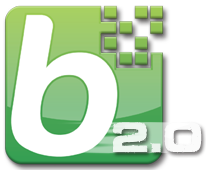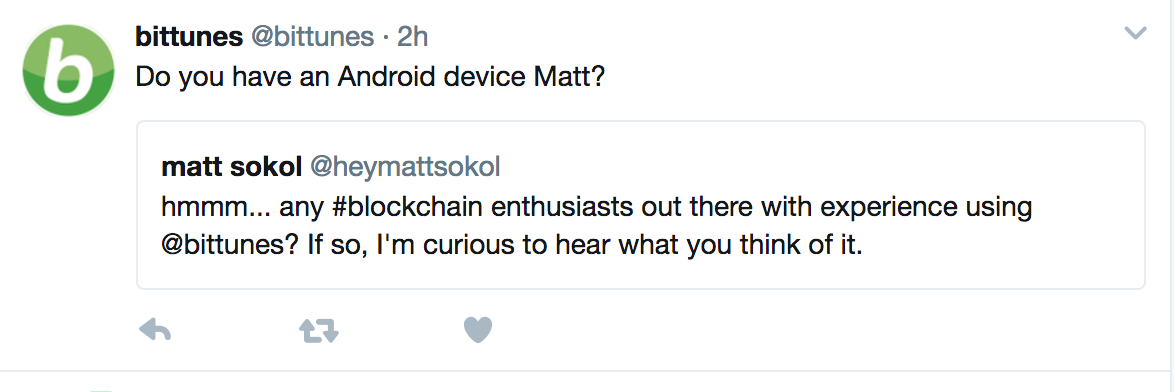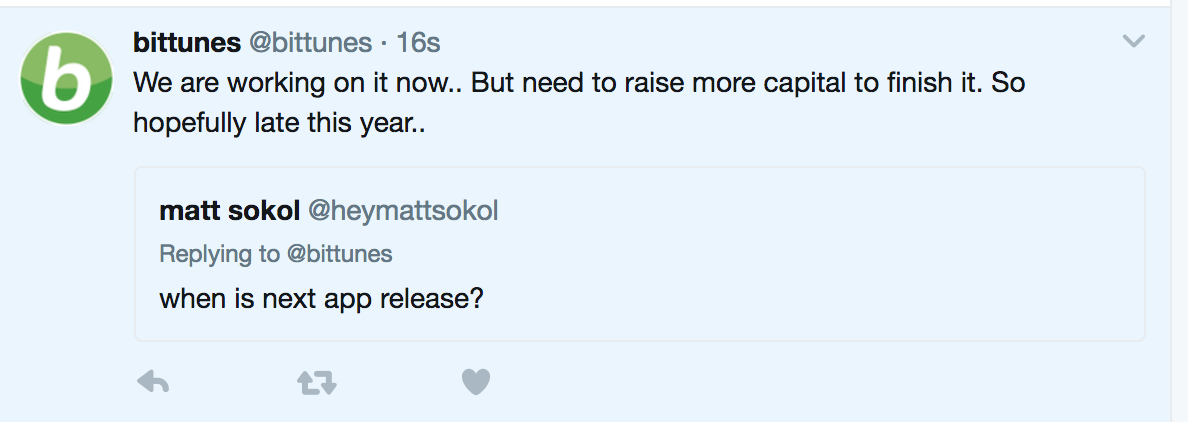The internet was supposed to save the music industry. Instead, it destroyed it. Will blockchain be any different?
Two weeks ago we all saw the big news with Spotify’s acquisition of blockchain start-up Mediachain (http://bit.ly/steemit-kyle-mediachain). Getting record royalties to the artists who deserve them has been a contentious issue for the entire history of recorded music. It’s good to see positive developments in the industry, even if I am skeptical of this one.
All of the talk about Spotify made me wonder: What options are available right now for artists in the field of blockchain distribution? Most importantly, are artists making money through these platforms?
Blockchain music distribution platforms enable artists to make money without middlemen taking a cut. They also facilitate ad-free monetization models, which is a HUGE development in the music industry.
With that said, I was able to uncover four different blockchain distribution platforms worth keeping an eye on. These are all places where you can, or will be able to, distribute your music online. Each one has a cryptocurrency component, ranging from bitcoin integration to altcoin systems.
Paying attention to these four companies will keep you on the cutting edge of music distribution. I recommend this for label owners, independent artists, and anybody who is earning “real money” on the internet with music.
With no further ado, here are four blockchain music distribution platforms to watch in 2017:
——
(1) DotBC

When Benji Rogers posted his two part screed on Blockchain and the Music Industry back in 2015, I was enamored (http://bit.ly/2pXShH6). He had a clear grasp on the complex issues at hand, offering a simple solution: A new media filetype built around VR.
Unfortunately, VR hasn’t grabbed mainstream attention the way Benji hoped. VR rigs are still expensive, unlikely to bridge the gap to the mass market anytime in the next few years.
With all that said, I was delighted to see that the DotBC project has moved forward since 2015. It is making a real impact thanks to its partnerships with Songtrust, CDBaby, and several other digital distributors.
The core of the DotBC project is a music data registry. When finished, the registry will serve as a comprehensive database of all song copyright ownership information. This will serve as a public database on the blockchain that all other apps can reference.
Imagine Spotify paying royalties based on a third-party database’s verified rate schedule. Not only would this be fairer than the current system, it would make instant payments possible on a per-stream basis.
To keep up with updates on DotBC, I’d recommend following Benij Rogers on Medium (https://medium.com/@lovingyourwork).
(2) UjoMusic

This was one of the first companies to distribute music to the Ethereum blockchain. Fans paid for songs on the UjoMusic website, after which those payments were immediately distributed to the rights-holders.
The first single for this project was Imogen Heap’s “Tiny Human”. This appeared to be a successful use case for UjoMusic and led to some other media attention (https://www.forbes.com/sites/georgehoward/2015/07/28/imogen-heap-gets-specific-about-mycelia-a-fair-trade-music-business-inspired-by-blockchain/#375f5ee57d17). The platform was in alpha at that time.
Now, one and a half years later, there is no public beta. UjoMusic is poised to start serving artists, many of whom are eager to tap into the power of blockchain. However, they seem to be taking a slow approach to the situation.
If you want to keep up with UjoMusic, they have a mailing list signup form over here: https://goo.gl/forms/p4jbQ8oyjo1QC8A43.
[Pre-Publication Note: As I’m about to post this, I found a blog post from Ujo with a lot more information. They have some interesting stuff going on. Here's a link: https://blog.ujomusic.com/q1-update-the-mvp-collaborating-towards-an-open-music-industry-infrastructure-25f3ac79a933)
(3) LBRY

LBRY is more of a YouTube alternative than a strict music distribution platform. It features videos, books, and any other files (such as a .zip of an album) that can be accessed in exchange for a cryptocurrency payment.
The token used is LBC, which is available through most major exchanges. Hosting is handled in a BitTorrent-style manner. Users can earn fractional amounts of LBC by seeding the network with their downloaded content.
LBRY is currently in semi-open beta. Creators can visit the LBRY slack channel (https://lbry.slack.com) to get an invite. The prices are set on a per-video basis, with no fee for uploading. This has big promise for artists with a lot of music videos.
LBRY has a mailing list for updates. You can sign up here: https://lbry.io/get?r=zfSjN.
Disclaimer: that link has my referral code, I get a few credits per signup. It has no effect on your LBRY signup
(4) BitTunes

BitTunes launched in 2013 as what may have been the first Bitcoin-related music startup. The company operates an Android app which is similar to the iTunes store, except decentralized. The users who buy songs then seed the network for future downloads.
All payments are displayed in USD, but the underlying transactions take place via bitcoin. 50% of the purchase goes to the artist, 50% to the seeders.
This is too bold of a pricing strategy in my book. How are you supposed to turn a profit when the seeders get 50% of the money? A good blockchain solution should give a larger percent to the creator.
The app is available on Android and the company is very active on Twitter, which is a good sign. Beyond that, there have been no updates posted to the website since 2014.
I had an interesting conversation with the company via twitter:




While this is an interesting use case for Bitcoin, it doesn’t appear to be a serious contender for future music industry significance.
What to Do in 2017
For now, there isn’t a great way to distribute your music on the blockchain. Your best bet is to upload it all on LBRY and BitTunes, while keeping a close eye on the DotBC project. Even then, only BitTunes is likely to generate any immediate revenue, and I don’t know how many members they have.
I was hoping to see Thirsty Entertainment’s Steem-based streaming music platform (https://thirsty.online/) come out earlier this year. Unfortunately they posted two months ago that “Due to the untimely resignation of our front end developer, we will be postponing our crowd sale and reimbursing all those who have contributed thus far.”
Hopefully there will be a more widely accessible, consumer-friendly distribution option available before the end of the year.
——
follow me: @heymattsokol
one more thing before you go - have you heard of my "Spirit Medicine" mailing list? it's got new music, musings, and recommendations from me. I send it to your inbox twice a month, so you can enjoy my stuff whenever it is convenient for you.
if you enjoy my content, this is a 100% super helpful way to support me :-D. click here: https://www.mattsokol.us/
